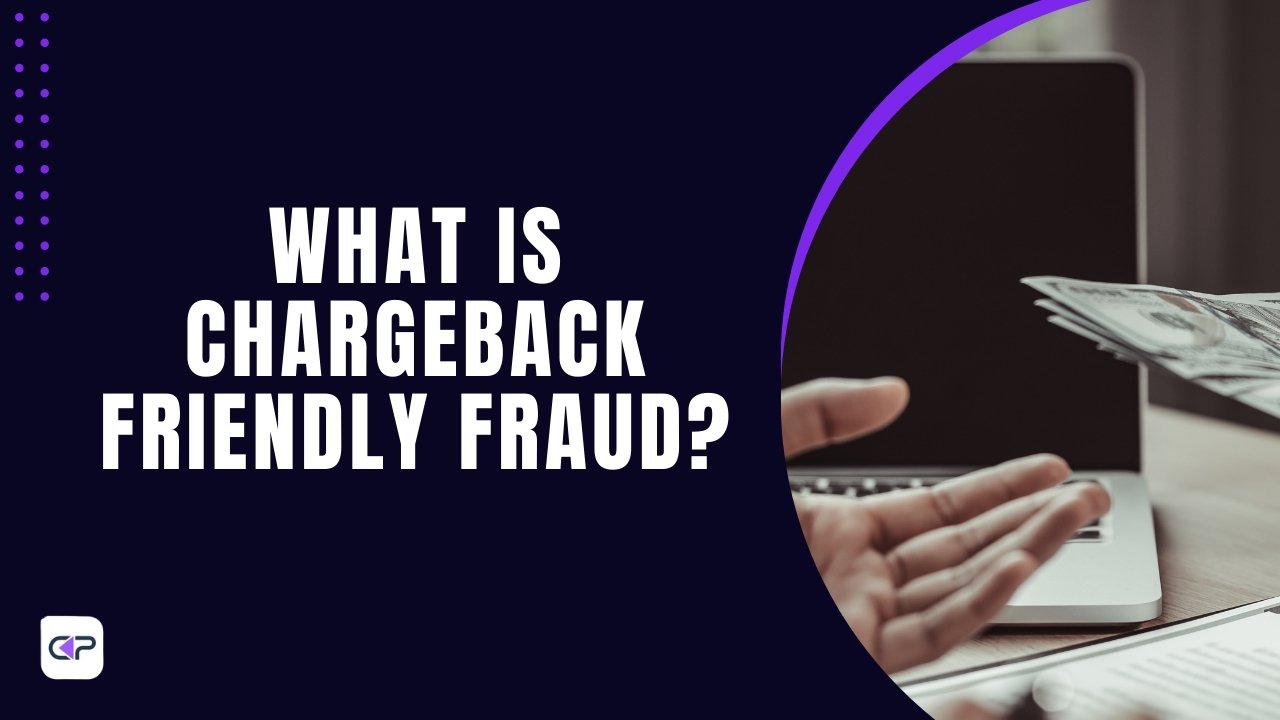
Friendly fraud, also known as chargeback fraud, occurs when a customer disputes a legitimate transaction, often resulting in a chargeback. This fraud typically occurs when a cardholder makes a purchase but later claims they never authorized the transaction, did not receive the product, or were unaware of the charge.
Unlike traditional fraud, friendly fraud is not always intentional, but its impact on businesses can be just as damaging.
In recent years, fraud has become a growing concern for merchants across industries. According to a report from the Merchant Risk Council, friendly fraud accounts for 60% to 80% of all chargebacks, making it a significant issue for businesses.
By 2023, merchants will face over $125 billion in losses globally due to chargebacks, with a large portion attributed to chargeback fraud. This trend is expected to rise as eCommerce continues to expand.
Our guide explores key aspects of friendly fraud, providing actionable insights for businesses to prevent and manage it effectively.
Causes of Friendly Fraud
This fraud can occur for various reasons, many of which are unintentional but have serious consequences for businesses. Understanding the underlying causes is essential for effectively managing and preventing chargeback abuse.
Here are the most common causes:
1. Customer Confusion
One of the primary causes of fraud is simple misunderstanding. Customers may forget about a purchase or fail to recognize a charge on their credit card statement. In some cases, the transaction descriptor used by the merchant is unclear, leading the cardholder to assume the charge is fraudulent.
2. Family or Household Purchases
Such fraud frequently occurs when family members or others in the household make purchases without the cardholder’s knowledge or consent. A common scenario is when children use a parent's card for online gaming or app purchases, leading to a chargeback once the cardholder discovers the transaction.
3. Subscription or Recurring Billing Confusion
Subscription services are a common source of friendly fraud. Customers may forget they signed up for a recurring service or trial period, and when they are billed again, they dispute the charge instead of canceling the subscription through the merchant. This is particularly common in digital services like streaming or software subscriptions.
4. Intentional Chargeback Fraud
While this fraud is often accidental, there are instances where customers knowingly abuse the chargeback process to obtain goods or services without paying. In these cases, customers make a purchase and then file a dispute with their bank, fully aware that the transaction was legitimate but seeking a refund nonetheless.

Identifying Friendly Fraud
There are key indicators that businesses can use to differentiate friendly fraud from other chargebacks.
By closely examining transaction data, customer behavior, and dispute patterns, merchants will detect potential instances of friendly fraud early and take corrective action.
Here are some effective ways to identify it:
1. Inconsistent Purchase and Dispute Behavior
One of the clearest signs of friendly fraud is a pattern of disputes from customers with consistent purchase histories. For example, if a customer regularly makes purchases and later disputes them despite receiving the goods or services, this behavior may indicate chargeback abuse. Monitoring recurring disputes from specific customers can help identify fraudulent patterns.
2. Chargebacks on Delivered Products or Services
Chargeback fraud often occurs after the customer has received the product or service. If the business has valid proof of delivery or usage—such as tracking numbers, download logs, or service activation records—and a chargeback is still filed, this is a strong indication of fraud. Merchants should collect and retain this evidence to dispute such chargebacks.
3. Use of Card Without Reporting Fraud
When true fraud occurs, customers typically report the unauthorized use of their credit card to their bank or the card issuer. However, in cases of friendly fraud, the customer may file a chargeback without having reported the card as stolen or compromised. If the merchant notices that the disputed transaction occurred with the customer’s verified credentials (e.g., correct billing/shipping address, familiar IP address), it likely is fraud.
4. Excessive Chargebacks from Repeat Customers
Repeat customers who continue to make purchases but repeatedly file chargebacks should raise red flags. This pattern suggests that the customer is benefiting from the goods or services provided but is attempting to avoid payment by abusing the chargeback process.
Why Friendly Fraud is on the Rise?
As online shopping grows, so does the opportunity for customers to file chargebacks without proper cause.
The convenience of digital payments, with relaxed return policies and the anonymity of online purchases, makes it easier for consumers to dispute charges, sometimes unintentionally or as a quick way to resolve dissatisfaction.
Additionally, the shift towards subscription services and digital goods has made it harder for merchants to reclaim disputed funds, further fueling the rise in such fraud cases.
Another factor contributing to the surge in fraud is a general lack of understanding about the chargeback process among consumers. Many customers view chargebacks as an alternative to refunds, not realizing the financial harm it causes businesses.
Some customers even exploit the chargeback system intentionally, knowing that banks tend to side with the cardholder in disputes.
As consumer behavior shifts and online purchases become more frequent, this fraud continues to increase, posing significant challenges for merchants across industries.
Friendly Fraud Impact of Merchants
Friendly fraud has a substantial financial and operational impact on merchants, eroding profit margins and straining resources. Each time a chargeback is filed, the merchant not only loses the revenue from the disputed transaction but also the product or service provided.
This leads to direct financial losses, especially when chargebacks are not successfully disputed.
Additionally, merchants are often required to pay chargeback fees to payment processors, which can range from $20 to $100 per incident, further increasing costs.
Beyond immediate financial losses, this fraud affects a merchant’s long-term operational health.
Excessive chargebacks damage the business’s reputation with payment processors and card networks, leading to higher processing fees or even account termination if chargeback ratios exceed acceptable limits.
This disruption to payment services can hinder business operations, making it harder to accept online payments, manage disputes, and retain customer trust.
For smaller merchants, the compounded impact of fraud is devastating, pushing some toward insolvency due to frequent, unchecked losses.
Prevention & Managing Friendly Fraud with ChargePay
ChargePay is an effective solution for preventing and managing friendly fraud through its proactive dispute prevention and efficient resolution capabilities.
With advanced AI algorithms, ChargePay identifies risk factors in real time, allowing businesses to flag suspicious transactions before they escalate into disputes.
This preemptive approach significantly reduces chargeback fraud, enabling merchants to maintain healthier payment processor accounts and protect revenue.
Furthermore, ChargePay’s direct partnerships with major card networks; Visa, MasterCard, American Express, and Discover, enhance its effectiveness in resolving disputes and minimizing chargebacks at the dispute stage.
In addition to its predictive capabilities, ChargePay streamlines the entire dispute resolution process by automating key workflows, such as evidence gathering and case tracking.
This efficiency saves valuable time and leads to faster and more successful outcomes in dispute resolution.
By offering insights and analytics to optimize payment processes, ChargePay empowers businesses to implement targeted strategies that reduce chargeback ratios and enhance overall transaction integrity.
With a focus on customer success and support, ChargePay provides merchants with the tools they need to effectively manage friendly fraud and strengthen their financial health.







.svg)







.svg)
.svg)
.svg)